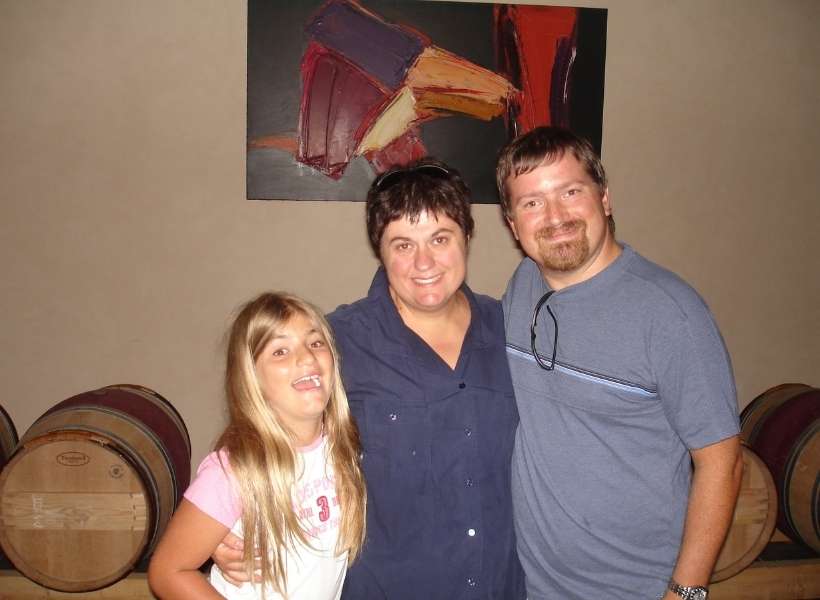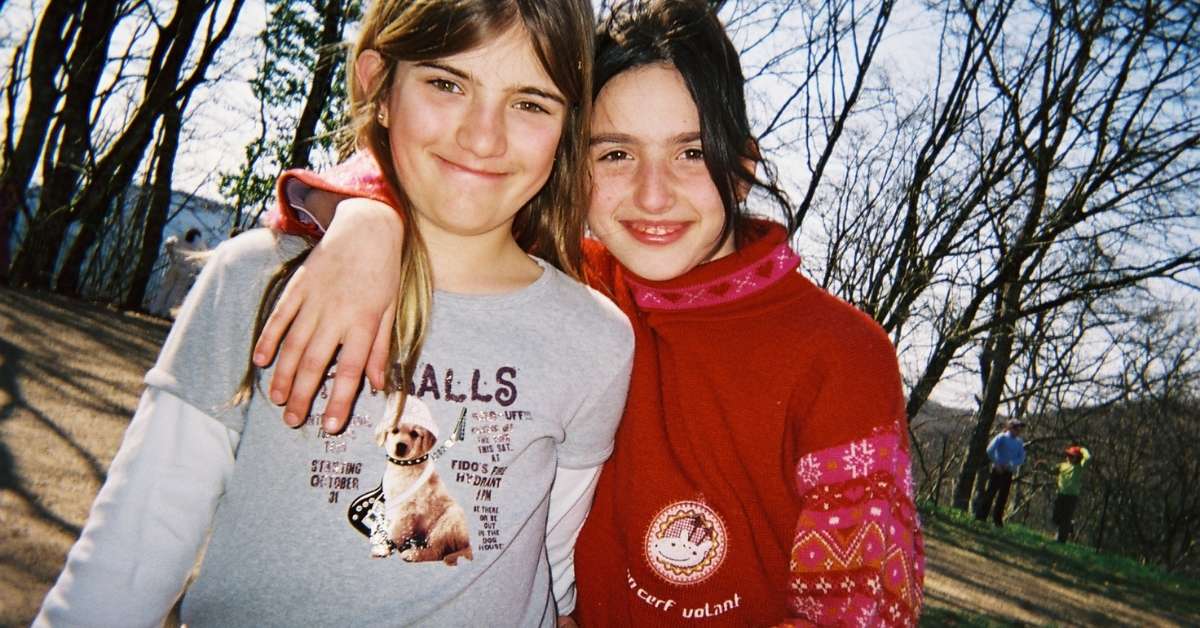Category: Moving to France
What is it like moving to France with children? More specifically, what is it like for the expat kid herself? Today Annie Sargent brings you a conversation with her daughter, Marianne Sargent about what it was like moving to France as a 7-year-old. Annie and her husband David moved to France with their 7-year-old Marianne. She's 23 now, happy she went through the experience, but it wasn't entirely painless. In today's episode she explains what it was like moving to France as a child.
When you move to France with children, you can assume that it's not going to be painless. Some kids will be sad at first. This is true no matter where you move to. Kids who have a good life in the US or Canada don't enjoy big changes. And when you add the complications of a new language and an entirely new culture, it's a lot to ask of the children.
We chose to put our daughter in regular French public school in the village we moved to because the point was for her to learn French as soon as possible. But that introduced a few complications such as:
- She felt like she was the center of attention at the school and she didn't enjoy that because she was shy as a kid. If you have the kind of child who loves to stand on a table and start entertaining the crowd, they would love it!
- Cursive writing was all new and different to her.
- School days in France are much longer even though they spend the same number of hours in the classroom at the end of the year. School was 8:15 until 5 PM with breaks.
- In America first graders mostly play and have fun in school. In France they have to be quiet and listen and perform educative tasks "à la dure". French school felt like a serious experience with homework.
- Parents are not involved in school at all in France. Parents are not asked to come help out in the classroom, although they might be asked to come on school outings.
- French teachers don't hand out their email address or cell number to parents. All communications go through a "cahier de liaison".
- French teachers don't have any qualms about handing out bad grades. If the kid can't do the task, they get a D with no apologies. The attitude is if you want to get better grades you need to try harder.
- Food at French school was very different. There were several courses and it was locally-made. Kids get their cutlery, some baguette, an appetizer, a main dish, and a dessert. It's a lot more food and none of it is processed.
- Marianne could understand everything in French within 3 months and within 6 months she was 100% fluent and even had a Toulouse accent.
- Once the child becomes fluent in French they'll have to master how to say things in English in a way French people will understand.
- Your child will have to take English with French kids and that will be painful. Most English teachers in France will make no effort to teach a native speaker any different than they do French speakers.
- It didn't take very long for Marianne to start getting good grades. She didn't have to repeat any grades, she wasn't held back, she adjusted very fast.
- The other kids paid too much attention to her, but none of it was mean, they were just curious.
- Summer day camp in French school and how they may choose music poorly because they don't understand English.
- Make sure your child who is fluent in English never corrects their English teachers. The folks who teach English in France are not always as fluent as they should be and they feel threatened when a kid knows more than they do.
- French school is very competitive. They say everyone's grades out loud and kids compare themselves to the others. Some teachers use the essay from a kid in her class as examples of what not to do. It's intimidating.
- French teachers don't hand out stickers and gold stars!
- Kids are resilient and will adjust even if the teachers are super supportive and high energy all the time.
- Everyone in France wants to send their kids to "classes préparatoire". These are classes that prepare high school kids to take competitive entrance exams (concours). This is much harder than normal high school and keep in mind that regular French high school is already harder than American high school! If it's "prépa intégrée" where it's the first two years of an engineering degree.
- The most Marianne ever paid for college was 400€ for a year of tuition. Many kids don't even have to pay tuition at all because it's based on the parent's income. The children of low income parents also qualify for grants around 400€ or 500€ which is not a lot, but it's enough to live on as a student in Toulouse.
- At French universities they don't hold your hand. Early grades in France are very rigid, but as soon as you hit the university it's the complete opposite. The student has to be organized and go do a lot to keep up. It's sink or swim in universities in France.
- At a French university they are really careful about not making students pay for anything that's not absolutely necessary. Budgets are tight and they keep it that way on purpose to keep universities cheap.
- There aren't a lot of international students in France other than kids from French islands who have to come to the mainland to attend the university.
- It's not easy to work while you're going to college in France because your school schedule changes from week to week. Students who do it rarely do it by choice because it's not easy.
- There are very few on-campus jobs for students in France and they don't pay well at all. Students who want a part-time job take restaurant jobs or retail jobs.
- Universities in France are specialized in law or sciences or literature and languages, etc. Marianne attended a science university but she knows other universities are run differently.
More episodes about moving to France
FOLLOW US ON:
Discussed in this Episode
- What was it like moving to France as a 7 year-old?
- Starting school in France with zero French
- Some differences between American and French school
- How long does it take to get comfortable with the new routine and new language?
- How did French children react to the new American?
- The nature of school in France (serious and competitive)
- Doing activities in English like Girl Guides
- How to maintain reading and writing skills in English while learning French
- The mandate to take English at school even though the child is already fluent in English
- Doing sports and after school activities in France
- Grades in French
- Graduating from College in France
- The cost of studying in France
- International students in France
Subscribe to the Podcast
Apple YouTube Spotify RSSSupport the Show
Tip Your Guides Extras Patreon Audio Tours
Category: Moving to France



